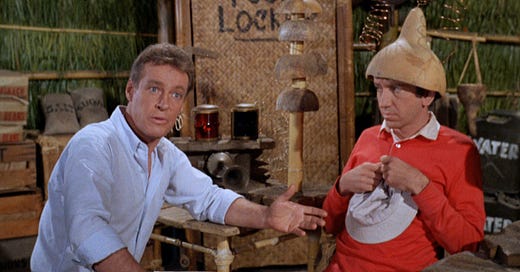These people suck. All of them.
The core argument of my book, Theory for the Working Sociologist, is simple. Social theory class should cover the main ideas of sociology, not be a historical review of social theory from the past. In other words, the typical social theory class should present general explanations of culture, communities, inequality, and social structure as they exist today, not do close readings of what people in the past said.
A recent article in the philosophy journal Inquiry by Hanno Sauer offers a powerful argument in support of this view. He targets those who obsess over history of philosophy with this thought experiment, which applies even more so to sociology:
Imagine a tiny island somewhere far away. The island only has a few million inhabitants. They have no modern technology, no scientific knowledge of contemporary physics or biology or astronomy or psychology, no real mathematics or logic and, perhaps worst of all, no internet. Many of the people on the island have never talked to each other, and they never will. Indeed, many are unaware of what the world outside of the island is like, or that such a world exists at all. But they do engage in philosophical thinking, and sometimes, they write their thoughts down.
Meanwhile, the rest of world outside of the island spends a disproportionate amount of time studying the writings of the islanders, scouring them for hidden insights and important, thus far undiscovered truths which they hope to recover by pondering what the islanders, many of which are notorious for indulging in a rather hermetic style, may have meant.
Comparatively speaking, the rest of the world spends a disproportionately small amount of time thinking about the extrainsular world – which contains orders of magnitude more people with all the latest knowledge at their disposal – and what they have to say. When you point this out to them, they become defensive, and insist that what the islanders have to say really is that good – usually much better and more insightful, at any rate, than what anyone from the rest of the world, perhaps with some exceptions, tends to produce.
This is an odd situation. Its intertemporal equivalent, I want to suggest, is the situation we are actually in. The tiny island far away is the history of philosophy, and we are paying too much attention to it.
Check mate.
Yes, the professor was smart, but he’s still dealing in coconuts.
Sociology cultivates a similar situation. The classical sociologists worked with none of the modern tools of modern sociology or very primitive versions of those tools. Even those who worked with something resembling modern tools (like Durkheim or DuBois who used quantitative data) did so at a level that is far exceeded by a decent upper division class in social statistics. One can probably learn more about the workings of the US by reading Wikipedia for a few hours than decoding every line of an ancient book by Marx or Weber.
Does that mean classical theorists didn’t learn anything? Of course not. They had a lot of solid insights. Still, that doesn’t mean we should make students read hundreds of pages of their obscure, and often strange, writings. Rather, we should treat classical sociology the way modern physical scientists treat earlier scientists. Figure out the interesting parts, build that into a curriculum aligned with modern theory, and ditch the rest. To do otherwise is the equivalent of treating remote islanders like the professor from Gilligan’s island.
++
My books: Grad Skool Rulz - cheap advice manual for grad students / The history of Black Studies / Obama and the antiwar movement / A Social Theory book you will enjoy reading / Intro Sociology for $1 per chapter





